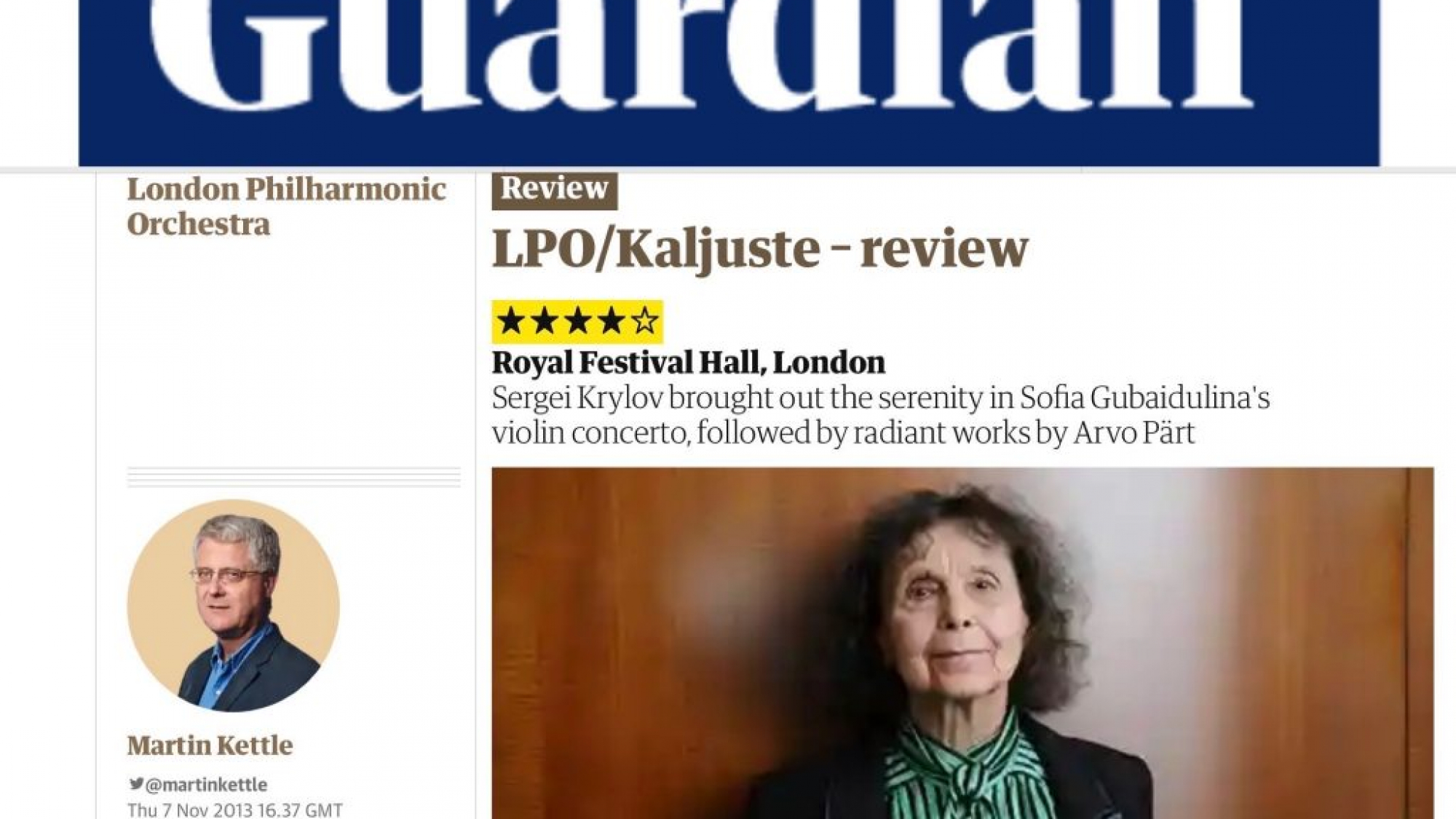Krylov, Kaljuste, LPO, Royal Festival Hall
Martin Kettle, November 7, 2013
Sergei Krylov brought out the serenity in Sofia Gubaidulina’s violin concerto.
Sofia Gubaidulina’s Offertorium, her Bach- and Webern-inspired 1980s violin concerto, was written for Gidon Kremer. It is no exaggeration to say that Kremer’s artistry and even his platform manner feel embedded in every page. So any violinist who takes up the solo part has big shoes to fill, especially when the 82-year-old composer herself is in the audience. But Sergei Krylov was more than up to the task.
Krylov’s playing had all the fierce physicality Gubaidulina’s score requires. At times it felt as if he was wrestling with it, so often did he twist and turn his body to extract the swooping and stabbing solo phrases from the musical marble and to ensure the maximum weight of the bow. Or maybe, this being the music of the deeply religious Gubaidulina, he was wrestling with an angel. As the concerto emerged into the rapt but always fragile chorale with which it concludes, it certainly felt that way.
If the still serenity at the end of Gubaidulina’s concerto is hard won, that of Arvo Pärt is a given. Under the clear and committed direction of his Estonian compatriot Tõnu Kaljuste, himself a revered figure in the Baltic school, the second half of the concert consisted of three key Pärt pieces. The glowing Magnificat for unaccompanied chorus, performed by the London Philharmonic Chorus, segued into the purely orchestral Cantus in Memoriam Benjamin Britten, played with intense concentration by the LPO strings. The two components then came together in Pärt’s 1990 Berlin Mass for chorus and string orchestra. This took time to find its pulse, and the delicate balances between choral text and instrumental nuance did not quite come together until the radiant Veni Sancte Spiritus and the Credo, after which the realisation of this characteristically rapt piece never looked back.
